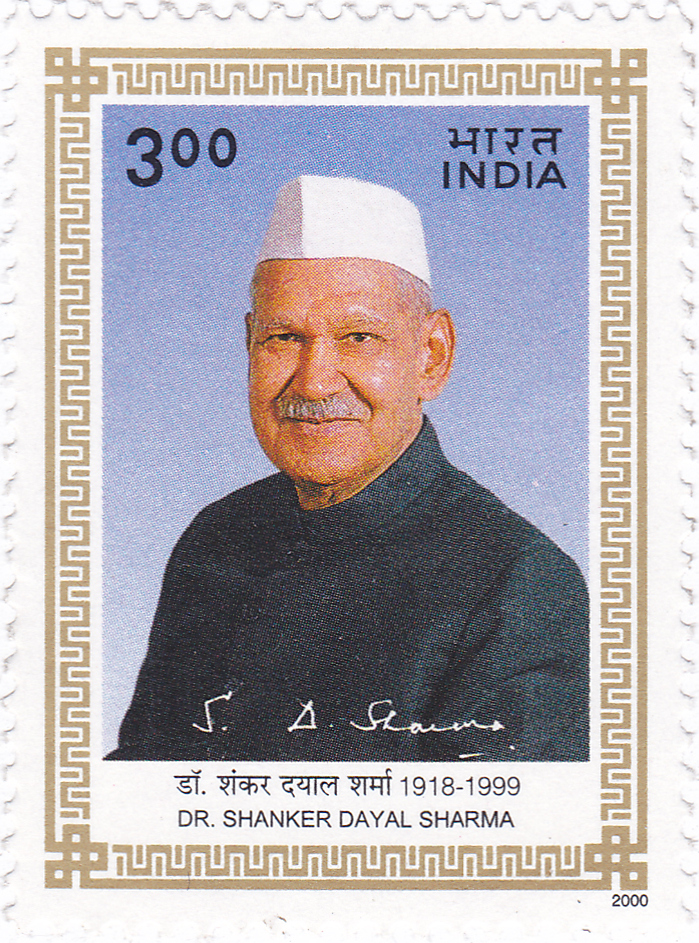Address By Dr. Shanker Dayal Sharma President Of India On The Occasion Of The 50th Anniversary Of The First Sitting Of The Constituent Assembly
Shankar Dayal Sharma: Frasi in inglese
Origine: Umeshwar Prasad Varma Law, Legislature, and Judiciary http://books.google.co.in/books?id=yuTC2E1U3BoC&pg=PA10, Mittal Publications, 1996, p. 10.
“Masjid will certainly be brought down.”
Origine: Mulayam Singh Yadav Mulayam claims then President S D Sharma knew of Babri demolition http://indianexpress.com/article/india/latest-news/mulayam-claims-then-president-s-d-sharma-knew-of-babri-demolition-2/, Press Trust Of India, The Indian Express, 6 August 2013
In:P.245.
Commissions and Omissions by Indian Presidents and Their Conflicts with the Prime Ministers Under the Constitution: 1977-2001
In his speech after taking charge of the President of India in July 1992.
Origine: Abraham Mattam (Mar) Forgotten East: Mission, Liturgy and Spirituality of the Eastern Churches http://books.google.co.in/books?id=ksI0JVvGoJIC&pg=PA256, Anamika Pub & Distributors, 2001, p. 256
Origine: Commissions and Omissions by Indian Presidents and Their Conflicts with the Prime Ministers Under the Constitution: 1977-2001, p. 254.
Origine: Commissions and Omissions by Indian Presidents and Their Conflicts with the Prime Ministers Under the Constitution: 1977-2001, P.247
He has rightly brought out the rationality and application of Sanskrit literature in diverse fields
Origine: Aruna Goel Good Governance and Ancient Sanskrit Literature http://books.google.co.in/books?id=El_VADF13pUC&pg=PA16, Deep and Deep Publications, 1 January 2003, p. 16-17
Address By Dr. Shanker Dayal Sharma President Of India On The Occasion Of The 50th Anniversary Of The First Sitting Of The Constituent Assembly
Origine: Commissions and Omissions by Indian Presidents and Their Conflicts with the Prime Ministers Under the Constitution: 1977-2001, P.233.
Address By Dr. Shanker Dayal Sharma President Of India On The Occasion Of The 50th Anniversary Of The First Sitting Of The Constituent Assembly
Address By Dr. Shanker Dayal Sharma President Of India On The Occasion Of The 50th Anniversary Of The First Sitting Of The Constituent Assembly
Eric Pace in:; Dayal Sharma, 81, Former President of India http://www.nytimes.com/2000/01/03/world/shankar-dayal-sharma-81-former-president-of-india.htmlShankar, The New York Times, 3 January 2000
At a banquet in China attended by President Jiang Zemin of China
Address By Dr. Shanker Dayal Sharma President Of India On The Occasion Of The 50th Anniversary Of The First Sitting Of The Constituent Assembly
Origine: Commissions and Omissions by Indian Presidents and Their Conflicts with the Prime Ministers Under the Constitution: 1977-2001, P.255.
His broadcast to the nation on the eve of the Republic day on 25 January 1996, in: p. 244.
Commissions and Omissions by Indian Presidents and Their Conflicts with the Prime Ministers Under the Constitution: 1977-2001
“I am here to defend the right of a member to express his views.”
When his ruling was protested by a member of the Parliament in the Raja Sabha and when he even threatened that he would resign from the post of Chairman, Rajya Sabha and Vice President of India, which eventually ended when the Congress party apologized to him on the floor of the house.
Origine: Commissions and Omissions by Indian Presidents and Their Conflicts with the Prime Ministers Under the Constitution: 1977-2001, P.202.
Origine: Kedar Nath Kumar Political Parties in India, Their Ideology and Organisation http://books.google.co.in/books?id=x3pJ8t4rxIsC&pg=PA153, Mittal Publications, 1 January 1990, p. 153
As President of Indian National Congress in 1972
When ordinances were proposed to be introduced with the approval of the President on issues of shortening the poll campaign from three weeks to two weeks, and providing for reservation for Dalit Christians.
Origine: Shubhankar Dam Presidential Legislation in India: The Law and Practice of Ordinances http://books.google.co.in/books?id=RvxGAgAAQBAJ&pg=PA218, Cambridge University Press, 16 December 2013, p. 218
Address By Dr. Shanker Dayal Sharma President Of India On The Occasion Of The 50th Anniversary Of The First Sitting Of The Constituent Assembly
Origine: Umeshwar Prasad Varma "Law, Legislature, and Judiciary", p. 10-11.
Pandit Jawaharlal Nehru has compelled me to study, among other things, the implications of a Constituent Assembly. When he first introduced it in the Congress resolutions, I reconciled myself to it because of my belief in his superior knowledge of the technicalities of democracy. But I was not free from skepticism. Hard facts have, however, made me a convert and, for that reason perhaps, more enthusiastic than Jawaharlal himself.
Address By Dr. Shanker Dayal Sharma President Of India On The Occasion Of The 50th Anniversary Of The First Sitting Of The Constituent Assembly
Address By Dr. Shanker Dayal Sharma President Of India On The Occasion Of The 50th Anniversary Of The First Sitting Of The Constituent Assembly
Origine: Commissions and Omissions by Indian Presidents and Their Conflicts with the Prime Ministers Under the Constitution: 1977-2001, P.236.
Origine: Commissions and Omissions by Indian Presidents and Their Conflicts with the Prime Ministers Under the Constitution: 1977-2001, P.233.
A.B.Vajpayee in: p. 233.
Commissions and Omissions by Indian Presidents and Their Conflicts with the Prime Ministers Under the Constitution: 1977-2001
Origine: Commissions and Omissions by Indian Presidents and Their Conflicts with the Prime Ministers Under the Constitution: 1977-2001, P.A.Sangama in: p. 233.
Origine: Commissions and Omissions by Indian Presidents and Their Conflicts with the Prime Ministers Under the Constitution: 1977-2001, P.257.
Origine: Commissions and Omissions by Indian Presidents and Their Conflicts with the Prime Ministers Under the Constitution: 1977-2001, P.202.
Origine: Commissions and Omissions by Indian Presidents and Their Conflicts with the Prime Ministers Under the Constitution: 1977-2001, P.202.
